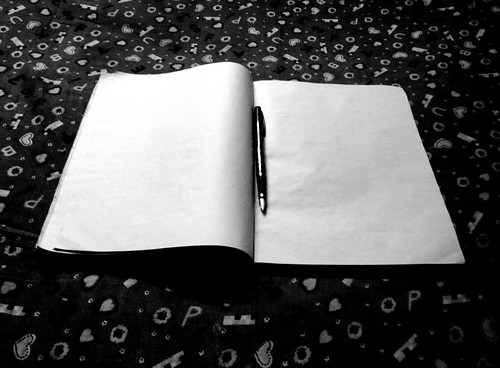So as I mentioned last week, I've been judging for my local RWA's chapter contest. And the thing about contests is that, as a contestant, you're only submitting a limited number of pages--usually around 25-35 pages--simulating the partial submission to an agent/editor. Therefore, as a judge I'm giving feedback not just on mechanics and craft stuff, but on the overall BIG DEAL question--am I hooked? When I hit page thirty and it ends, do I want to read more?
Well, what I'm finding is that many times someone may be really strong in mechanics and craft and even voice, but the first chapters are either all backstory (which I talked about last week) or are too much showing of every day life. Let's meet the MC's friends, their family, let's describe what everyone looks like and what his or her house is like, etc. Then maybe by chapter three, let's get to the "good stuff".
Now I'm a proponent of getting a glimpse into the ordinary life. It can work really well and in movies that's a very important component. Almost always, the opening images of a movie are the MC's ordinary life. We see how this person's life is right now so we can feel the impact of the big change/turning point/etc. However, here's the key: it's a glimpse. Meaning VERY brief.
No one else is going to make it to chapter three's "good stuff" if nothing has really happened up until then. I'm reading it all because I'm a judge, but the agent or editor has already moved on. You have to get the story moving now.
So what does that opening scene need?
One of my favorite writing books Make a Scene: Crafting a Powerful Story One Scene at a Time by Jordan Rosenfeld (If you don't have it, get it. The book breaks down the elements of a scene and also goes over types of scenes--dramatic/contemplative/action/flashback etc.) Anyway, the book also has a great litmus test for what needs to be present in an opening scene.
by Jordan Rosenfeld (If you don't have it, get it. The book breaks down the elements of a scene and also goes over types of scenes--dramatic/contemplative/action/flashback etc.) Anyway, the book also has a great litmus test for what needs to be present in an opening scene.
1. A challenge to your protagonist's status quo.
My MC finds out she's going to have to work with her ex-boyfriend--the only guy to ever really break her heart.
2. An antagonist for your character to encounter. (Doesn't have to be THE antagonist.)
My hero is the antagonist in the first chapter, but then my heroine finds out her sister has gone missing in the next scene. Therefore, the true antagonist is the person behind her sister's disappearance.
3. Introduce your protagonist's immediate intentions.
My heroine intends to ignore the ex-boyfriend and their history and just treat him like a stranger.
4. A glimpse into your MC's history/personality/motivation.
I open with a "glimpse into ordinary life" with my MC at the end of a really bad date. It's very brief and I don't even name the guy she's having dinner with, but we get a feel for her current life and her voice during the two paragraph encounter.
5. The protagonist makes a decision that leads immediately to more complications.
The person who makes a decision in my first chapter is actually the hero (my romance has two protagonists--hero and heroine have equal POV time). So my hero decides to follow my heroine after she gets a frantic call from her sister and leaves the party. This of course leads to the main suspense thread of the plot because they both show up and find the sister missing. Oh, and guess who is the only person who can help the heroine find the sister? Yep, the hero. :)
Therefore, even though my opening scene is only one layer of the story and doesn't introduce the suspense plot and the big turning point until the next chapter, all these basic points have been hit. It's enough conflict and action to whet the appetite to keep turning the page (hopefully!) and see how much more complicated things are going to get.
What do you think? Are these components a good summary of what you like to read/write in an opening scene? Think back to your favorite books or movies, do they follow these guidelines? Can you think of any other "must haves" in an opening?
*This is a revamped post from 2009



